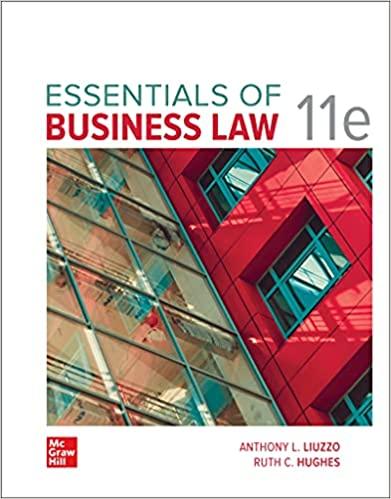Question
Cara is trying to decide between two strengths of liquid nails to build a cupboard. Cara explains her issue to Alan, a sales assistant at
Cara is trying to decide between two strengths of liquid nails to build a cupboard. Cara explains her issue to Alan, a sales assistant at the store. She states to Alan that the cupboard to hold only light materials and is to be made with particle board. Alan insists that she needs the liquid nails that are twice as expensive as the alternative brand. He justifies his recommendation that the weaker version will not last and is unsuitable for the job required.
Cara buys the recommended product but finds out later from a carpenter friend that the cheaper version would have done the job just as well.Has Alan breached the ACL in any way? Justify your answer.
When you buy products or services from a trader, you are entering into a contract. Before you do, make sure you understand what you are agreeing to.
- What is a contract?
- Terms and conditions
- Ending a contract
- More information
What is a contract?
A contract is an agreement made between two or more parties that is legally enforceable. Contracts can be written or verbal.
A contract arises when one party makes an offer and the other party communicates an intention to accept it.
You could be entering a contract by:
- signing a document
- selecting a product in a shop and paying for it at the check-out counter
- clicking on an 'I agree' button on a web page.
It is unlawful for businesses to force or coerce you into entering a contract.
Terms and conditions
Contracts have terms and conditions which set out the rights and responsibilities of each party to the contract.
Make sure you read and understand the terms and conditions of a contract before you accept it. If you are unsure, seek legal advice.
While you may have the opportunity to negotiate before you agree, it is common for you to be offered the same or a similar contract as everyone else. This is known as a standard form contract. There are laws to protect you fromunfair contract termsin standard form consumer contracts where you have little or no opportunity to negotiate with the trader.
Ending a contract
There are limited circumstances when consumers may end a contract without penalty and these can include:
- if the business has misrepresented the goods, services, terms or conditions
- if a cooling-off period applies.
A cooling-off period is a safeguard designed to give consumers the opportunity to change their minds about a purchase or agreement they have made. You have a right to a cooling-off period when you purchase goods or services throughtelemarketing or door-to-door sales.
Step by Step Solution
There are 3 Steps involved in it
Step: 1

Get Instant Access to Expert-Tailored Solutions
See step-by-step solutions with expert insights and AI powered tools for academic success
Step: 2

Step: 3

Ace Your Homework with AI
Get the answers you need in no time with our AI-driven, step-by-step assistance
Get Started


